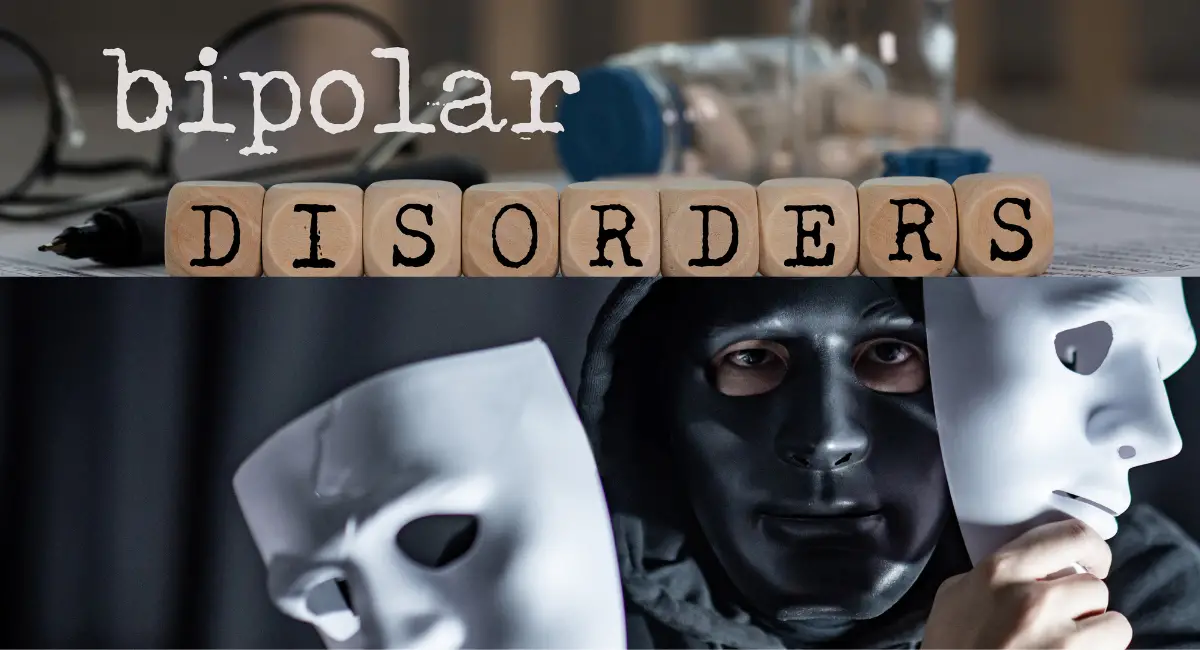
Factitious Disorder (Including Munchausen Syndrome): Symptoms, Causes, and Therapy Options
Contents
Introduction
Factitious Disorder, also known as Munchausen Syndrome, is a mental health condition in which an individual deliberately fabricates, exaggerates, or induces illness or injury, either in themselves or others, without any clear external incentive or gain. The primary motive behind this behavior is to assume the “sick role,” garnering attention, sympathy, or care from others. Unlike malingering, where symptoms are faked for personal gain (e.g., avoiding work or obtaining financial compensation), factitious disorder is driven by psychological needs, often linked to emotional distress or underlying personality disorders.
The Diagnostic and Statistical Manual of Mental Disorders, Fifth Edition (DSM-5) classifies Factitious Disorder under Somatic Symptom and Related Disorders, with two primary subtypes: Factitious Disorder Imposed on Self and Factitious Disorder Imposed on Another (also known as Munchausen by Proxy). This article will explore Factitious Disorder, focusing on these two subtypes, including the Symptoms, Causes, and Therapy Options for managing and treating the condition.
Types of Factitious Disorder
1. Factitious Disorder Imposed on Self
Factitious Disorder Imposed on Self is characterized by the deliberate fabrication, exaggeration, or induction of physical or psychological symptoms in oneself. Individuals with this disorder may go to great lengths to make themselves appear ill or injured, including tampering with medical tests, self-inflicting injuries, or taking medications to produce symptoms.
- People with Factitious Disorder Imposed on Self often have an extensive knowledge of medical conditions, which they use to deceive healthcare providers. They may falsify their medical history, undergo unnecessary surgeries or treatments, and seek care from multiple healthcare providers to avoid detection.
- The motivation for this behavior is psychological, not financial or legal gain. These individuals are seeking attention, care, or sympathy from others, often becoming dependent on the “sick role.”
John, a 40-year-old man, repeatedly presents himself to emergency rooms with symptoms of severe abdominal pain. He frequently exaggerates his symptoms and has undergone multiple unnecessary surgeries. Despite clear test results showing no physical cause, he continues to visit different doctors and hospitals, seeking medical attention.
2. Factitious Disorder Imposed on Another (Munchausen by Proxy)
In Factitious Disorder Imposed on Another (FDIA), an individual fabricates or induces illness in another person, typically someone under their care, such as a child, elderly parent, or dependent. The perpetrator presents the victim as ill or injured to medical professionals, often subjecting them to unnecessary medical interventions. In these cases, the perpetrator seeks attention and validation through their role as the caregiver.
- FDIA often involves a parent (typically the mother) inducing or fabricating illness in a child to gain sympathy and praise from healthcare professionals and others. The child may be subjected to unnecessary medical treatments, medications, or even surgeries, leading to physical harm.
- This behavior can result in serious health consequences for the victim, including long-term disability or death if the abuse is severe or goes undetected. The perpetrator often denies any wrongdoing and may appear deeply concerned for the victim’s well-being, which makes detection difficult.
Emma, a mother of two, repeatedly brings her 5-year-old daughter to the hospital, claiming the child has chronic stomach pain and vomiting. Despite normal medical tests, Emma insists that her daughter undergo further evaluations and procedures. It is later discovered that Emma has been secretly inducing her child’s symptoms by administering medication without the doctor’s knowledge.
Common Symptoms of Factitious Disorder
Factitious Disorder presents a variety of symptoms, depending on whether it is imposed on oneself or another. Below is a table outlining the common symptoms of Factitious Disorder and how they manifest in daily life:
| Symptom | Description/Example |
|---|---|
| Fabrication of Symptoms | Deliberately faking or exaggerating physical or psychological symptoms. For example, someone may falsify their medical history to present themselves as chronically ill. |
| Inducing Illness or Injury | Actively causing harm to oneself or others to produce real symptoms. For example, a caregiver may secretly administer harmful substances to a child to induce vomiting. |
| Frequent Hospital Visits | Constantly seeking medical care, often from different doctors or hospitals, to avoid detection. For example, someone may visit multiple emergency rooms to report the same fabricated symptoms. |
| Tampering with Medical Tests | Manipulating medical tests or falsifying lab results to create the appearance of illness. For example, someone may inject themselves with insulin to cause a drop in blood sugar levels. |
| Willingness to Undergo Invasive Procedures | Readily agreeing to or requesting unnecessary medical tests, surgeries, or treatments. For example, someone may push for exploratory surgery despite normal test results. |
| Lack of External Incentives | No obvious external rewards for the behavior (e.g., financial gain, avoiding work). For example, someone may go to great lengths to present themselves as ill without any clear benefit other than attention. |
| Imposing Illness on Others (FDIA) | Deliberately causing illness or injury in someone under their care. For example, a caregiver may administer drugs to a child to induce symptoms of poisoning. |
Causes and Risk Factors of Factitious Disorder
The exact cause of Factitious Disorder is not fully understood, but it is believed to result from a combination of psychological, environmental, and possibly biological factors. Below are key causes and risk factors.
1. Emotional and Psychological Factors
Factitious Disorder is often linked to underlying emotional or psychological distress. Individuals may have a deep-seated need for attention, sympathy, or validation, which they seek by adopting the role of a patient or caregiver.
- Many individuals with Factitious Disorder have a history of childhood trauma, neglect, or abuse. The need for attention and care may stem from feelings of abandonment or a lack of nurturing during early developmental years.
- Additionally, some individuals may have underlying personality disorders, such as Borderline Personality Disorder, which involves unstable emotions and a heightened need for attention and approval from others.
John’s behavior of seeking medical attention for fabricated symptoms was traced back to childhood neglect, during which he felt abandoned by his parents. By repeatedly presenting himself as ill, he seeks the care and attention he lacked as a child.
2. History of Medical Illness or Experience in Healthcare
Individuals who have had personal experiences with illness, either in themselves or a family member, may be more likely to develop Factitious Disorder. People with knowledge of medical conditions and treatments often use this information to fabricate or induce symptoms.
- Many individuals with Factitious Disorder have extensive medical knowledge or have worked in healthcare settings, such as nursing or caregiving roles. This familiarity with medical terminology and procedures allows them to convincingly fabricate symptoms.
- Some individuals develop Factitious Disorder after having experienced a prolonged illness during childhood or adolescence. The attention they received during their illness may reinforce the desire to remain in the “sick role.”
Emma, who developed Factitious Disorder Imposed on Another, had worked as a nurse for many years and had extensive knowledge of medical conditions. She used her medical expertise to fabricate symptoms in her daughter, convincing doctors to perform unnecessary tests and procedures.
3. Underlying Personality Disorders
Individuals with certain personality disorders, particularly Borderline Personality Disorder (BPD) and Narcissistic Personality Disorder (NPD), are at higher risk of developing Factitious Disorder. These personality disorders are characterized by a need for attention, approval, or control over others.
- Individuals with Borderline Personality Disorder may engage in Factitious Disorder behaviors as a way to cope with feelings of emptiness, abandonment, or emotional instability. The attention and care they receive while in the “sick role” can temporarily soothe these emotional needs.
- Similarly, individuals with Narcissistic Personality Disorder may seek validation and admiration through their role as a patient or caregiver, using illness as a means to gain sympathy or praise from others.
John, who frequently presents himself as ill, was later diagnosed with Borderline Personality Disorder. His pattern of seeking medical attention was linked to his fear of abandonment and his need for constant reassurance from healthcare providers.
Therapy and Treatment Options for Factitious Disorder
Treating Factitious Disorder is particularly challenging, as individuals are often unwilling to admit to their behavior or seek help. However, certain therapeutic approaches can be effective in managing the disorder. Below are key treatment options:
1. Cognitive Behavioral Therapy (CBT)
Cognitive Behavioral Therapy (CBT) is one of the most effective treatments for Factitious Disorder. CBT helps individuals recognize and challenge their distorted beliefs about illness and learn healthier ways to meet their emotional needs without resorting to fabricating or inducing symptoms.
John collaborates with a Cognitive Behavioral Therapy (CBT) therapist to uncover the emotional roots of his frequent need to seek medical attention, such as a deep-seated fear of abandonment and a longing for care and validation. Together, they explore how these feelings influence his behaviors and identify the unhelpful thought patterns that perpetuate them
2. Dialectical Behavior Therapy (DBT)
Dialectical Behavior Therapy (DBT) is particularly useful for individuals with Factitious Disorder who also have underlying personality disorders, such as Borderline Personality Disorder. DBT teaches emotional regulation, distress tolerance, and interpersonal effectiveness, helping individuals manage their emotional needs without engaging in harmful behaviors.
Emma, who has been diagnosed with Borderline Personality Disorder and struggles with Factitious Disorder Imposed on Another, begins learning Dialectical Behavior Therapy (DBT) techniques to address her emotional instability and improve her interpersonal relationships.
3. Trauma-Focused Cognitive Behavioral Therapy (TF-CBT)
For individuals whose Factitious Disorder is linked to past trauma or childhood neglect, Trauma-Focused Cognitive Behavioral Therapy (TF-CBT) can help address unresolved emotional pain and reduce the need to seek attention through illness. This therapy focuses on processing trauma and developing healthier coping strategies.
John’s therapist employs Trauma-Focused Cognitive Behavioral Therapy (TF-CBT) to guide him through processing the emotional neglect he endured during childhood. Together, they explore the impact of his past experiences, helping John identify and challenge the unhelpful beliefs he developed as a result of his trauma.
Long-Term Management of Factitious Disorder
Managing Factitious Disorder over the long term requires consistent therapy, support, and monitoring to prevent relapse. Below are key strategies for long-term management:
- Consistent Therapy: Ongoing participation in CBT, DBT, or TF-CBT helps individuals address the underlying emotional issues contributing to their behavior and develop healthier ways to meet their needs.
- Monitoring and Supervision: In cases of Factitious Disorder Imposed on Another, close monitoring and supervision are necessary to protect the victim from harm. Legal intervention may be required to ensure the safety of the individual under the perpetrator’s care.
- Building Emotional Awareness: Developing emotional awareness and understanding how emotional pain manifests in physical symptoms can help individuals recognize their behaviors and reduce the need to seek attention through illness.
- Support Networks: Engaging with mental health professionals, support groups, or trauma-informed therapists provides ongoing emotional and psychological support, helping individuals navigate the complexities of Factitious Disorder.
Conclusion
Factitious Disorder (Including Munchausen Syndrome) is a challenging condition where individuals deliberately fabricate or induce illness in themselves or others for psychological reasons. The disorder can result in serious physical and emotional harm, particularly in cases of Factitious Disorder Imposed on Another. However, with effective treatments—such as Cognitive Behavioral Therapy, Dialectical Behavior Therapy, and Trauma-Focused Cognitive Behavioral Therapy—individuals can learn to manage their symptoms, address underlying emotional pain, and develop healthier ways to meet their psychological needs. Long-term management strategies, including consistent therapy and support, are essential for improving quality of life and preventing harm.
References
- American Psychiatric Association. (2013). Diagnostic and Statistical Manual of Mental Disorders (5th ed.). Washington, DC: American Psychiatric Publishing.
- Feldman, M. D. (2004). Playing Sick?: Untangling the Web of Munchausen Syndrome, Munchausen by Proxy, Malingering, and Factitious Disorder. Routledge.
- Bass, C., & Halligan, P. W. (2007). Factitious disorders and malingering: Challenges for clinical assessment and management. The Lancet, 369(9572), 1427-1436.
- Turner, J. A., & Reid, G. J. (2002). Munchausen syndrome by proxy: Identification and diagnosis. Child Abuse & Neglect, 26(2), 181-190.
- Dike, C. C., & Baranov, D. (2007). Factitious disorder and malingering. The Handbook of Forensic Psychology, 102(7), 315-333.
Explore Other Mental Health Issues








